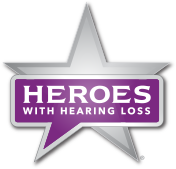Meet Your Veterans Service Officer
Many veterans face a variety of challenges after leaving the military – all of which can have a profound effect on their families in one way or another. While unemployment, homelessness or mental health issues1 are some of the more “high profile” concerns we often hear about, transition challenges, such as writing a resume or going back to school can be just as challenging. Asking for help can be difficult for many veterans. Fortunately, there are resources available—you just have to know where to look.
If you are frustrated by the process of attempting to use your veteran benefits or are struggling in other ways, thousands of knowledgeable Veterans Service Officers (VSOs) are in nearly every region throughout the United States, ready to assist you.
What is a Veterans Service Officer?
A Veterans Service Officer is a specially trained advocate who works with veterans (and their dependents and survivors) to best utilize available benefits and resources. Many VSOs are veterans themselves, so they often have a personal understanding of the issues veterans face. VSOs are experts at connecting veterans with support and services provided by the government and privately funded veteran programs.
Who needs a VSO?
If you are a veteran or veteran family member, we suggest contacting a VSO when faced with any of the following:
- adjusting to civilian life
- finding affordable, adequate housing and using your VA loan
- gaining employment and writing resumes
- seeking additional education or training, or translating your military training to civilian jobs
- treating mental health issues or overcoming addictions or substance abuse
- addressing physical injuries or obtaining disability (or other) compensation
- garnering a pension, seeking burial benefits or collecting survivor benefits
- arranging for transportation
- locating military records2
How do VSOs support veterans?
It’s no secret that navigating the VA benefits system can be daunting. Finding the appropriate programs, understanding the rules and regulations, and properly filing forms is no easy task. Luckily, official VSOs have been trained and accredited and are authorized by Congress3 and the VA Secretary to:
- provide answers and advice about available programs and benefits from federal, state, county and local resources
- assist in filling out and filing claims (if the veteran or family member is eligible for benefits)
- represent veteran or family members and present claims in VA hearings2
VSOs are also familiar with programs outside the VA that often provide additional resources. VSOs can point you toward local veterans support groups, family and relationship counseling organizations, food assistance sources, emergency funds options and other support avenues that many may not have thought of.
Will you have to pay to use a VSO?
No. VSOs are paid through veteran service organizations or local governments which are usually supported by county, state or federal funds. Most VSOs are paid while others are volunteers but in any case, a VSO (chartered, unchartered, volunteer or otherwise) will not ask you for compensation.
How do you find a VSO?
There are VSOs associated with the following congressionally chartered veteran organizations, to name a few:
- National Association of County Veterans Service Officers
- The American Legion
- Disabled American Veterans (DAV)
- Veterans of Foreign Wars (VFW)
- American Veterans (AMVETS)4
An easy way to find an accredited VSO is through the National Association of County Veterans Service Officers (NACVSO) website. Here you’ll find a map of the United States where you can click on your state to find VSO offices and contacts in your area. Then you can reach out to the VSO office nearest you. To find more congressionally chartered veterans service organizations, visit Veterans.House.gov.
What if you can’t find a VSO in your area?
If you have trouble finding a qualified VSO in your area, please contact Heroes With Hearing Loss® at 800-974-1517 or info@HeroesWithHearingLoss.org and we’ll connect you with someone who can help you find the right VSO for you.
What if you need help right now?
If you need to talk with someone immediately, please call the Veterans Crisis Line at 800-273-8255 (and press 1), text 838255 or visit VeteransCrisisLine.net to start a confidential veteran chat. The Veterans Crisis Line is available to veterans and their families 24/7.
Share your story!
Has a Veteran Service Officer made a difference in your life? Share your story with us in the comments.
1 MilitarySpot.com, The Top 5 Challenges Veterans Face Today. Retrieved from militaryspot.com/community/the-top-5-challenges-veterans-face-today.
2 Military.com, Veteran Service Officers, Retrieved from military.com/benefits/veteran-benefits/veteran-service-officers.html.
3 Retrieved from va.gov/vso/.
4 MilitaryBenefits, Should You Use a Veterans Service Organization to File a VA Claim? Retrieved from militarybenefits.info/veterans-service-organization-va-claims/.
Last updated September 12, 2019
 Heroes With Hearing Loss
Heroes With Hearing Loss